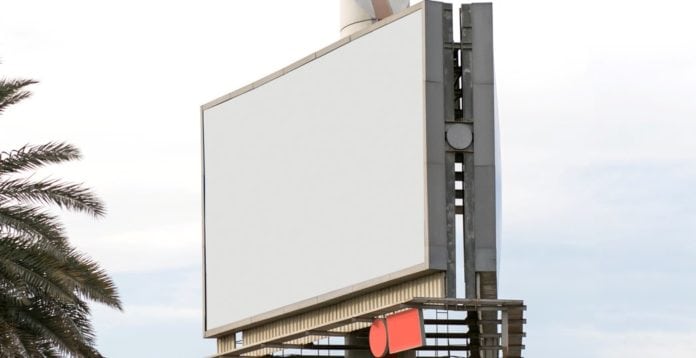Discovery makes or breaks litigation. Knowing how discovery tools work enables a litigant to get the most out of their case. Requests for admission and depositions in California are the topic of this article. This article is the first in a two part series that will discuss the various discovery methods utilized in litigation in California. The information in this article only applies to unlimited civil cases in which the amount demanded is more than $25,000.
Requests for admission:
Requests for admission are written requests that are served on the opposing party. Requests for admission can request that the opposing party admit or deny certain pertinent facts, and/or admit or deny that certain documents attached to the requests for admission are genuine.
The purpose of requests for admission is to reduce the number of issues that will have to be tried or to establish whether or not certain documents such as a contract are genuine. For example requests for admission may be served on the opposing party requesting, among other things, that they admit that they signed a specific document on a certain date and that a copy of the document which is attached is a genuine copy of the document that they signed.D
The law in California states that a defendant may propound requests for admission at any time, however a plaintiff may not do so until at least ten (10) days have passed since service of the summons on the defendant, or the general appearance by the defendant, whichever occurs first. See Code of Civil Procedure § 2033.020.
The rules governing requests for admission are found in Code of Civil Procedure § 2033.010, et seq.
California law imposes a numerical limit of thirty five (35) on the number of requests for admission as to the truth of facts. However if a supporting declaration stating that any additional requests for admission are warranted due to the complexity of the case and other certain factors is attached, then any party may propound additional requests for admission. See Code of Civil Procedure §§ 2033.030 and 2033.040.
There is no numerical limit on requests for admission of the genuineness of documents except as justice requires to protect the responding party from unwarranted annoyance, embarrassment, oppression, or undue burden and expense. See Code of Civil Procedure §§ 2033.030 and 2033.050.
California law also imposes certain format restrictions on requests for admission. No request for admission may contain subparts, or a compound, conjunctive or disjunctive question. See Code of Civil Procedure § 2033.060. This means that a request for admission cannot contain part a, b, c, etc., nor can it contain a question with more than one part, and it cannot contain the word “and” which is conjunctive, it also cannot contain the word “or” which is disjunctive.
Although many requests for admission do violate these format rules any party using such a format runs the risk of the responding party objecting on those grounds.
Requests for admission have an important advantage in that a party may not amend or withdraw their response to any request for admission without requesting leave of court to amend or withdraw their admission. See Code of Civil Procedure § 2033.300. This is in contrast to responses to interrogatories and requests for production of documents which in most cases may be amended or supplemented without requesting permission from the court.
An experienced litigation attorney can analyze the fact pattern of your particular case and draft requests for admission specifically designed for your case.
Depositions:
The purpose of a deposition is to request that the opposing party or any other individual or company be questioned under oath, typically in an attorney’s office regarding all matters that are relevant to any of the issues involved in that particular lawsuit. The party being deposed can also be requested to produce specified documents at the deposition as well. During the deposition a certified shorthand reporter creates a verbatim record of everything that is said during the deposition. The deposition can also be videotaped as well.
When an entity such as a corporation is deposed they are required to designate the person most knowledgeable regarding certain facts that must be specified in the deposition notice.
The law in California states that a defendant may serve a deposition notice without leave of court at any time after that defendant has been served, or has appeared in the action, whichever occurs first. The plaintiff may serve a deposition notice without leave of court on any date that is 20 days after the service of the summons on, or appearance by, any defendant. On motion with or without notice, the court, for good cause shown, may grant to a plaintiff leave to serve a deposition notice on an earlier date. See Code of Civil Procedure § 2025.210.
Depending on the situation a deposition may be scheduled fairly early in the case, or may not be scheduled until later in the case, after discovery has been served and responded to. This is particularly true when taking the deposition of the opposing party as they can then be questioned under oath regarding their discovery responses.
A major disadvantage of depositions is the cost. The party taking the deposition must pay for the services of the certified shorthand reporter, the hourly rate for their attorney and in some cases may have to pay to rent the conference room where the deposition will be held. However depositions can also be very useful if used correctly. This is where retaining an experienced litigation attorney will pay dividends as they can determine whether taking depositions would be cost effective in your case.
Link to Part 2 of this article.
Thank you for reading. I hope I could have been educational as I endeavor to provide my knowledge as a free public service. Please note that all the materials and information on this web site are general analyses made available for the public’s general informational purposes only. These analyses are not in any way intended to serve as specific legal advice to be applied in your particular situation. Although I am an attorney, absent a signed retention and engagement letter, I am not your attorney. There are no exceptions to this rule. Moreover, you shall not rely on the information I am providing you, as it is only for your general knowledge and educational purposes, since this information would likely change based on any additional facts. Thus the transmission and receipt of information on this web site by anyone does not form or constitute an attorney-client relationship. My knowledge of laws is limited to California. Anyone receiving any information on this web site should not act upon the information provided without first obtaining the services of professional legal counsel licensed in their respective jurisdiction. Best of luck.
Law Offices of Nathan Mubasher
2621 Green River Rd, Ste 105 PMB 403
Corona, CA 92882
tel 1-800-691-2721 | fax 1-310-356-3660
www.mubasherlaw.com



































